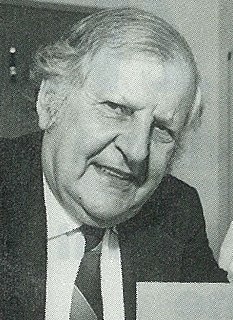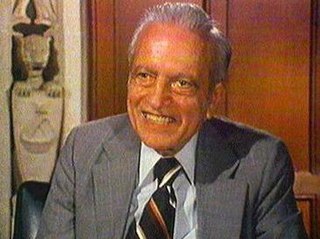A Quote by Arthur Schopenhauer
It is a clumsy experiment to make; for it involves the destruction of the very consciousness which puts the question and awaits the answer.
Quote Topics
Related Quotes
Suicide may also be regarded as an experiment - a question which man puts to Nature, trying to force her to answer. The question is this: What change will death produce in a man's existence and in his insight into the nature of things? It is a clumsy experiment to make; for it involves the destruction of the very consciousness which puts the question and awaits the answer.
It is impossible to devise an experiment without a preconceived idea; devising an experiment, we said, is putting a question; we never conceive a question without an idea which invites an answer. I consider it, therefore, an absolute principle that experiments must always be devised in view of a preconceived idea, no matter if the idea be not very clear nor very well defined.
A dialogue is very important. It is a form of communication in which question and answer continue till a question is left without an answer. Thus the question is suspended between the two persons involved in this answer and question. It is like a bud with untouched blossoms . . . If the question is left totally untouched by thought, it then has its own answer because the questioner and answerer, as persons, have disappeared. This is a form of dialogue in which investigation reaches a certain point of intensity and depth, which then has a quality that thought can never reach.
I have often had cause to feel that my hands are cleverer than my head. That is a crude way of characterizing the dialectics of experimentation. When it is going well, it is like a quiet conversation with Nature. One asks a question and gets an answer, then one asks the next question and gets the next answer. An experiment is a device to make Nature speak intelligibly. After that, one only has to listen.
Unfortunately, all life on earth - the only life we know - represents, for all its current variety, the results of a single experiment , for every earthly species evolved from the common ancestry of a single origin. We desperately need a repetition of the experiment (several would be better, but let's not be greedy!) in order to make a judgement. Mars represents our first real hope for a second experiment - the sine qua non - for any proper answer for the question of questions.
We can each sit and wait to die, from the very day of our births. Those of us who do not do so, choose to ask - and to answer - the two questions that define every conscious creature: What do I want? and What will I do to get it? Which are, finally, only one question: What is my will? Caine teaches us that the answer is always found within our own experience; our lives provide the structure of the question, and a properly phrased question contains its own answer.
Theory said one thing and the experiment said something different, so that was the stimulus that started me going, that there was something there to be explained, which wasn't understood and to try to see why that experiment gave the answer it did, so it was a big opportunity for a young student starting to have actually an experiment which contradicted the theory, so that's was my chance to understand that.
To be a scientist you have to be willing to live with uncertainty for a long time. Research scientists begin with a question and they take a decade or two to find an answer. Then the answer they get may not even answer the question they thought it would. You have to have a supple enough mind to be open to the possibility that the answer sometimes precedes the question itself.
I never buy anything unless I can fill out on a piece of paper my reasons. I may be wrong, but I would know the answer to that ...I'm paying $32 billion today for the Coca Cola Company because... If you can't answer that question, you shouldn't buy it. If you can answer that question, and you do it a few times, you'll make a lot of money.







































